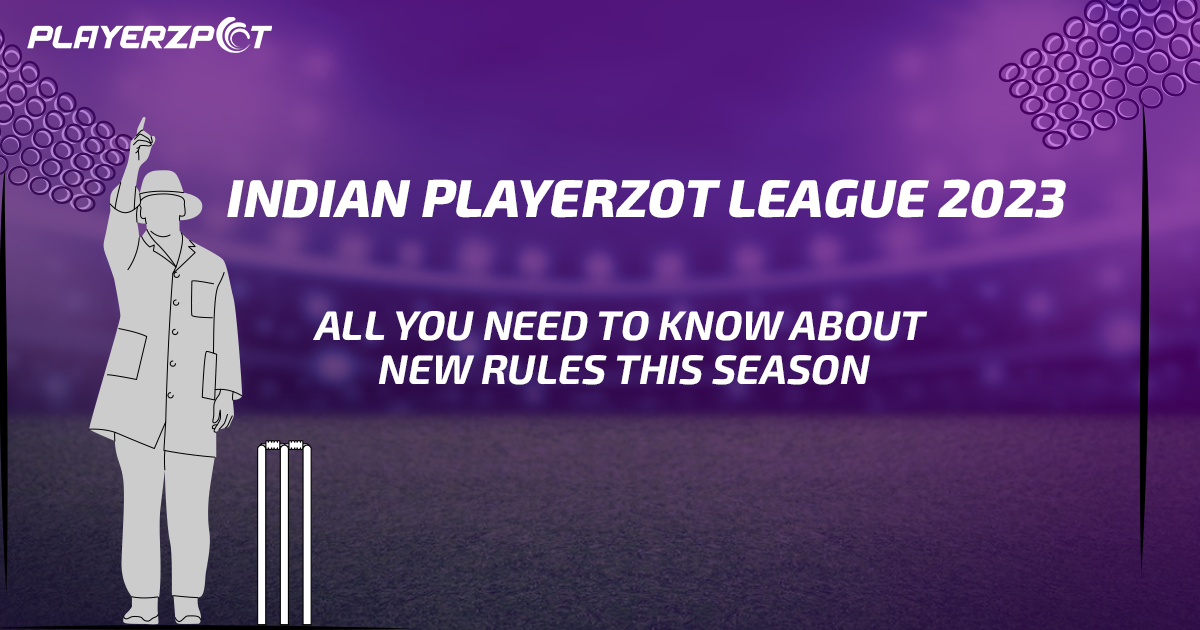The famed Indian Playerzpot League 2023 t20 tournament will kick start on 31 March. After a long wait of two years, the tournament will return back to its home and away match fixtures. The opening match indeed is set to be a blockbuster one as the defending champions Gujarat team goes against the mighty Chennai. This season is indeed a different one with new and welcoming changes, especially in the rules.
Being inspired by the foreign leagues and their body of work, the Indian cricket board has made some noteworthy changes that will come into effect from the first game onwards. Let us take a deep dive into the new rules changes and how will it impact on the on-field action.
The biggest change in the rules this season is that the captains can declare their Playing X1 after the coin toss. This would allow franchises to pick their best X1s based on the result of the toss which can be batting or bowling first. The Indian Playerzpot League becomes the second league after South Africa T20 League to allow the teams to name their X1s after the toss.
Another big change this season is the introduction of the Impact Player. The captain will nominate the Impact Player to the umpire who will then signal the involvement of that player with a special gesture of crossing his arms over his head with a fist in one hand and an open palm in the other. The Impact player can be named before the start of the innings, after the completion of an over, or after the fall of a wicket.
The Impact player is one of the five substitute players named in the team sheet. Both the playing teams are allowed to use just one Impact player per match but it is not compulsory to do so. It has to be noted that the player replaced by Impact Player can no longer be a part of the game and can not return even as a substitute fielder.
Apart from these major changes, there are a few rule changes as well. Over-rate penalty of only four fielders outside the 30-yard circle for every over that is not bowled in the allotted time. Unfair movement by the wicketkeeper will result in a dead ball and five extra penalty runs. The same applies to the fielders across the pitch.
In other changes of rules, the teams will be allowed to review on-field decisions regarding wides or no-balls. A total of 2 unsuccessful reviews will be allotted to the teams in each innings. Considering how the finest margins of the wide ball and somewhat controversial calls by the umpires have seen teams lose out on the important match, this change will be a welcoming one for the teams.
![]()

